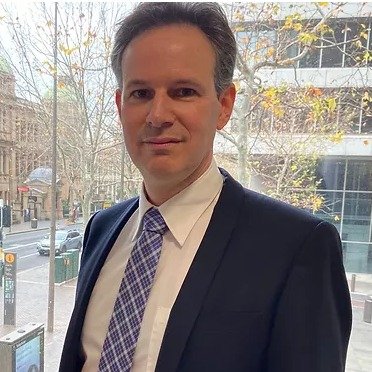Best ADR Mediation & Arbitration Lawyers in Australia
Share your needs with us, get contacted by law firms.
Free. Takes 2 min.
Or refine your search by selecting a city:
List of the best lawyers in Australia
About ADR Mediation & Arbitration Law in Australia
Alternative Dispute Resolution (ADR) encompasses a range of processes that serve as alternatives to traditional court litigation for resolving disputes. In Australia, ADR primarily includes mediation and arbitration. Mediation is a voluntary process where an impartial third party helps the disputing parties reach a mutually acceptable agreement. Arbitration, by contrast, involves a neutral third person known as an arbitrator, who makes a decision that is usually binding on the parties. Both processes are valued for their efficiency, cost-effectiveness, and ability to keep disputes confidential.
Why You May Need a Lawyer
Legal assistance in ADR may be necessary in several situations, including:
- Drafting or reviewing ADR agreements to ensure they are legally binding and tailored to your needs.
- Guidance on selecting appropriate mediators or arbitrators and understanding the rules that will apply to the ADR process.
- Representation or advice during mediation sessions, especially in complex or high-stakes disputes.
- Assistance in enforcing or challenging arbitration awards in court if necessary.
- Understanding the strategic advantages and potential drawbacks of ADR in your specific legal context.
Local Laws Overview
In Australia, ADR practices are influenced by federal and state laws and various industry codes of practice. The key elements of ADR that are pertinent to Australian context include:
- The Commercial Arbitration Act in each state and territory which governs domestic arbitration.
- Mediators and arbitrators must adhere to standards set by organizations like the Resolution Institute or the Australian Mediation Association.
- The Family Law Act which encourages mediation for resolving family disputes.
- The enforceability of ADR agreements and outcomes, which may be supported or reviewed by courts.
- Confidentiality clauses in ADR proceedings which are generally respected in Australia unless disclosure is required for legal reasons.
Frequently Asked Questions
1. What is the difference between mediation and arbitration?
Mediation is a non-binding process where a mediator facilitates negotiation between parties to help them reach an amicable settlement. Arbitration is a more formal process where the arbitrator hears evidence and arguments from the parties involved and then makes a binding decision.
2. Are ADR processes mandatory in Australia?
Some courts require ADR processes to be attempted before allowing a case to proceed to litigation. However, it largely depends on the context and jurisdiction.
3. How long does an ADR process take?
The length of the ADR process can vary greatly depending on the complexity of the dispute, the willingness of the parties to reach a resolution, and the specific ADR process used.
4. How much does ADR cost compared to going to court?
ADR is generally more cost-effective than traditional court litigation, as it typically involves fewer procedural demands and can resolve disputes quicker.
5. Is the outcome of arbitration considered final?
Yes, arbitration decisions are usually binding, and courts rarely overturn them unless there is evidence of procedural unfairness or misconduct.
6. Can I choose my mediator or arbitrator?
Parties typically agree on selecting a mediator or arbitrator. If parties cannot agree, some ADR organizations can appoint one.
7. What if my mediation or arbitration does not lead to a resolution?
If mediation fails, parties can proceed to litigation. If arbitration doesn’t resolve the matter as expected, options are limited due to the binding nature of arbitration.
8. How confidential are ADR processes?
ADR processes are generally confidential, with some exceptions. For instance, disclosures may be required by law in certain cases.
9. Do I need a lawyer to participate in ADR?
Participation without a lawyer is possible, but legal advice is often beneficial, especially for understanding contracts and the implications of outcomes.
10. How can I enforce an arbitration award?
Arbitration awards can be enforced through the courts if the losing party does not comply voluntarily.
Additional Resources
Consider reaching out to the following resources for more information or assistance:
- Resolution Institute - Offers training and accreditation for mediators and arbitrators in Australia.
- Australian Mediation Association - Provides information on mediation practices and finds accredited professionals.
- Australian Commercial Disputes Centre - Offers dispute resolution services and information.
- Family Court of Australia - Provides resources and guides specifically related to family law ADR processes.
Next Steps
If you believe you need legal assistance in ADR, consider taking the following steps:
- Consult with a lawyer who specializes in ADR to understand your rights and options.
- Research and contact local ADR organizations or services for guidance.
- Evaluate the costs, potential outcomes, and benefits of using ADR for your dispute.
- Remain open to negotiation and settlement possibilities during the ADR process.
Lawzana helps you find the best lawyers and law firms in Australia through a curated and pre-screened list of qualified legal professionals. Our platform offers rankings and detailed profiles of attorneys and law firms, allowing you to compare based on practice areas, including ADR Mediation & Arbitration , experience, and client feedback.
Each profile includes a description of the firm's areas of practice, client reviews, team members and partners, year of establishment, spoken languages, office locations, contact information, social media presence, and any published articles or resources. Most firms on our platform speak English and are experienced in both local and international legal matters.
Get a quote from top-rated law firms in Australia — quickly, securely, and without unnecessary hassle.
Disclaimer:
The information provided on this page is for general informational purposes only and does not constitute legal advice. While we strive to ensure the accuracy and relevance of the content, legal information may change over time, and interpretations of the law can vary. You should always consult with a qualified legal professional for advice specific to your situation.
We disclaim all liability for actions taken or not taken based on the content of this page. If you believe any information is incorrect or outdated, please contact us, and we will review and update it where appropriate.
Browse adr mediation & arbitration law firms by city in Australia
Refine your search by selecting a city.















